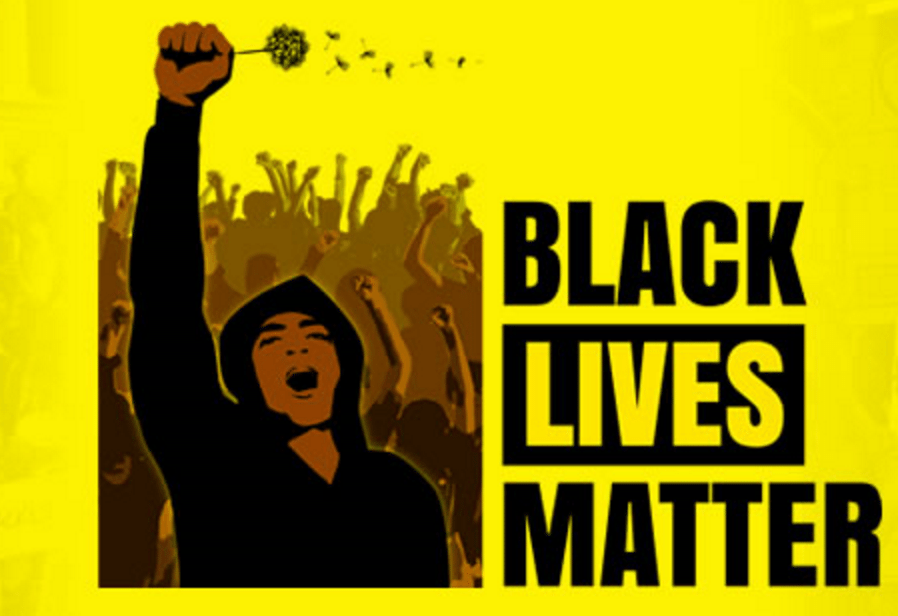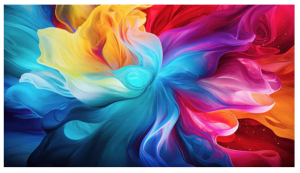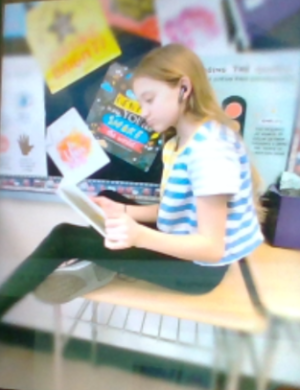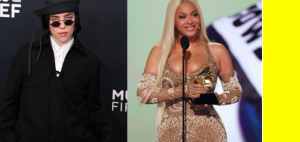Black Lives Matter: Systemic Racism, Protests, and Police Reform
June 16, 2020
With the craziness of the world right now, a lot remains unclear. However, thousands of Americans are fighting for equal rights regardless of race, a fight that has continued for centuries. Since our nation began, white men have profited off of the unethical business of slave trade and mistreating slaves by exploiting them for their labor on plantations. This helped create the strong economy America was built on, at the cost of irreversible systemic racism that has continued even to the modern day. Even after slavery was abolished with the 13th amendment, the unjust system of sharecropping and the strict enforcement of Jim Crow laws throughout the South lasted for decades later.
We are all human beings, and no matter our skin color, we should all receive equal treatment and opportunities. However, Black and Brown Americans have been and continue to be treated unfairly. While progress has been made over time, there is still much improvement to be made in this country until all people, regardless of race, nationality, gender, sexuality, or religion, are treated equally. Recently, the murder of many innocent Black people have led to wider recognition of this issue. In response, there have been many protests throughout our country, in cities like Philadelphia, New York City, and Washington D.C., and many more. Streets are filled with citizens speaking out against injustice. The Black Lives Matter movement has people using their voices for good in all 50 states, and many other countries as well! Despite the numerous peaceful protests occurring, a majority of these marches against police brutality have been met with strong opposition from supporters of traditional police departments, and unfortunately in some instances, police brutality. Peaceful protesters, young and old, calling for an end to systemic racism have been met with tear gas, rubber bullets, and other violence from law enforcement. This unequal and unfair treatment should not be an issue in the first place because treating others equally is something that we should all know how to do. However, in response to all of these activists speaking out, action is being taken to create change.
First, it is important to realize that this is definitely not a new issue. Statistics show that Black people have been 2.5 times more likely to be killed by the police than white people, as shown on the Mapping Police Violence website. This is clear evidence of racial bias in law enforcement, and the continued use of excessive and uncalled for violence has led to the unjust murders of Black people as a result of police brutality. This does not make any sense considering that 58.5% of violent acts are committed by white people compared to 37.5% by people of color, according to a study by the FBI. There are lots of statistics comparable to these that show empirical evidence that Black people are significantly more likely to be stopped by the police, arrested, or to suffer police brutality.
For many years we have been aware of the inequity, but recent events have created a tipping point, and led worldwide recognition and calls for change. Recently specifically disturbing and blatantly abusive acts have been committed by the police that have been spoken out about. A 46-year-old father of five children named George Floyd went to the grocery store in his town. He got a pack of cigarettes, and had paid for them with what was believed to be a counterfeit bill. He then walked out of the store, and was confronted by police officers . They apprehended him, and one officer named Derrick Chauven held his knee on George’s neck for nearly 9 minutes, while the other officers at the scene prevented bystanders from interfering. Despite Floyd’s pleas with them to stop, and the fact that he repeated the phrase, “I can’t breathe,” the officer continued to use excessive force, ultimately killing an innocent civilian (New York Times) . Another innocent young Black man, Ahmaud Arbury, was going out for a run in his neighborhood when he was verbally attacked with racial slurs by a white son and father in a truck. He was then fatally shot, despite posing no threat and causing absolutely no harm (CNN). Breonna Taylor, an emergency medical worker, was asleep in her home, when the police stormed in, breaking down her door shortly after midnight in March. The police were searching for a drug dealer, although they knew the location was far from Breonna’s home. Her boyfriend fired in self defense, not knowing who the intruders were, and Breonna was then shot and killed by the police (The New York Times). These are just a few of the innocent Black people who have fallen victim to police brutality in recent times.
Protests have sparked nationwide, demanding major reform of existing criminal justice and policing. During these protests communities gather, and people of all races come together to peacefully demand change and equality for Black people. However, in some cities these protests against police violence have been met by police violence, as told by CNN. At this time, our country demands for things to be different, as they have been this way for too long. Other than joining protests, there are many ways for people to help out. One way is “adtivism”, where listeners play a livestream in which all of the profits from advertisements go toward supporting organizations that support the Black Lives Matter movement. The organization Black Lives Matter is run by activists in the U.S., U.K., and Canada. This group uses fundraising to make petitions, hold activist demonstrations, and spread awareness to promote change for the Black community. Another way to help out is to sign petitions calling for justice for the Black community. Lastly, being informed about what is going on in the world is really important. When you are educated you can educate others, and this is essential because a lot of people do not know what is going on.
By using their voices, millions of people have helped to create changes. We still have a long way to go, and there is no way to make up for the lost lives and acts of violence that have been committed. However, police departments have been taking steps in the right direction. In Minneapolis, Congress banned the use of chokeholds by police and in addition to Dallas made a requirement that officers intervene if they see their colleagues using unnecessary force. In Maryland, a workgroup to address police reform and accountability is being created. In New Jersey, a program will be launched in many largely populated towns to have a bigger and better crisis intervention team, where law enforcement is paired with mental health professionals so they can more safely respond to crises involving mental health, as stated by Governor Murphy. This will be an improvement on previous community policing efforts, which had already reduced the use of excessive force with alternative nonlethal measures, held police more accountable, and utilized input from community stakeholders to promote better relationships between the police and the communities they serve. With the crisis intervention measures being taken now to address mental health, the hope is that community policing will surpass previous efforts to save even more lives. These are just some of the many changes that are being made across the country and in our state.
Change will happen. People using their voices and standing up for what they believed in has led to change already. So now the question is, how will you create change?
Works Cited
Editors, Women’s Health. “How To Support Black Lives Matter Organizations Just By Watching A Video At Home.” Women’s Health, Women’s Health, 5 June 2020, www.womenshealthmag.com/life/a32782210/zoe-amira-youtube-video-black-lives-matter-donations/.
“Governor Murphy and AG Grewal Announce Continued Progress and New Measures to Strengthen Police-Community Trust.” Office of the Governor, 2 June 2020, www.nj.gov/governor/news/news/562020/20200602a.shtml.
Hill, Evan, et al. “8 Minutes and 46 Seconds: How George Floyd Was Killed in Police Custody.” The New York Times, The New York Times, 1 June 2020, www.nytimes.com/2020/05/31/us/george-floyd-investigation.html.
“Home.” Black Lives Matter, 31 May 2020, blacklivesmatter.com/.
Leonnig, Carol D. “Park Police Spokesman Acknowledges Chemical Agents Used on Lafayette Square Protesters Are Similar to Tear Gas.” The Washington Post, WP Company, 5 June 2020, www.washingtonpost.com/politics/park-police-spokesman-acknowledges-chemical-agents-used-on-lafayette-square-protesters-are-similar-to-tear-gas/2020/06/05/971a8d78-a75a-11ea-b473-04905b1af82b_story.html.
“Mapping Police Violence.” Mapping Police Violence, mappingpoliceviolence.org/.
McLaughlin, Eliott C. “Ahmaud Arbery Was Hit with a Truck before He Died, and His Killer Allegedly Used a Racial Slur, Investigator Testifies.” CNN, Cable News Network, 5 June 2020, www.cnn.com/2020/06/04/us/mcmichaels-hearing-ahmaud-arbery/index.html.
“Morris County Prosecutor’s Office Police Use of Force and Officer Involved Shooting Program Is a Great Success.” Morris County Prosecutor’s Office, 18 Apr. 2018, prosecutor.morriscountynj.gov/2018/04/morris-county-prosecutors-office-police-use-of-force-and-officer-involved-shooting-program-is-a-great-success/.
Oppel, Richard A., and Derrick Bryson Taylor. “Here’s What You Need to Know About Breonna Taylor’s Death.” The New York Times, The New York Times, 30 May 2020, www.nytimes.com/article/breonna-taylor-police.html.
Sanchez, Ray. “Police Reforms Quickly Take Hold across America. It’s Only Just Getting Started.” CNN, Cable News Network, 14 June 2020, www.cnn.com/2020/06/14/us/george-floyd-national-police-reforms/index.html.
Shoichet, Catherine E. “Protests Are Erupting over Police Brutality. And Some Officers Are Responding to the Outcry with Force.” CNN, Cable News Network, 5 June 2020, www.cnn.com/2020/06/02/us/police-protests-use-of-force/index.html.
“Table 43.” FBI, FBI, 17 Sept. 2018, ucr.fbi.gov/crime-in-the-u.s/2017/crime-in-the-u.s.-2017/tables/table-43.





